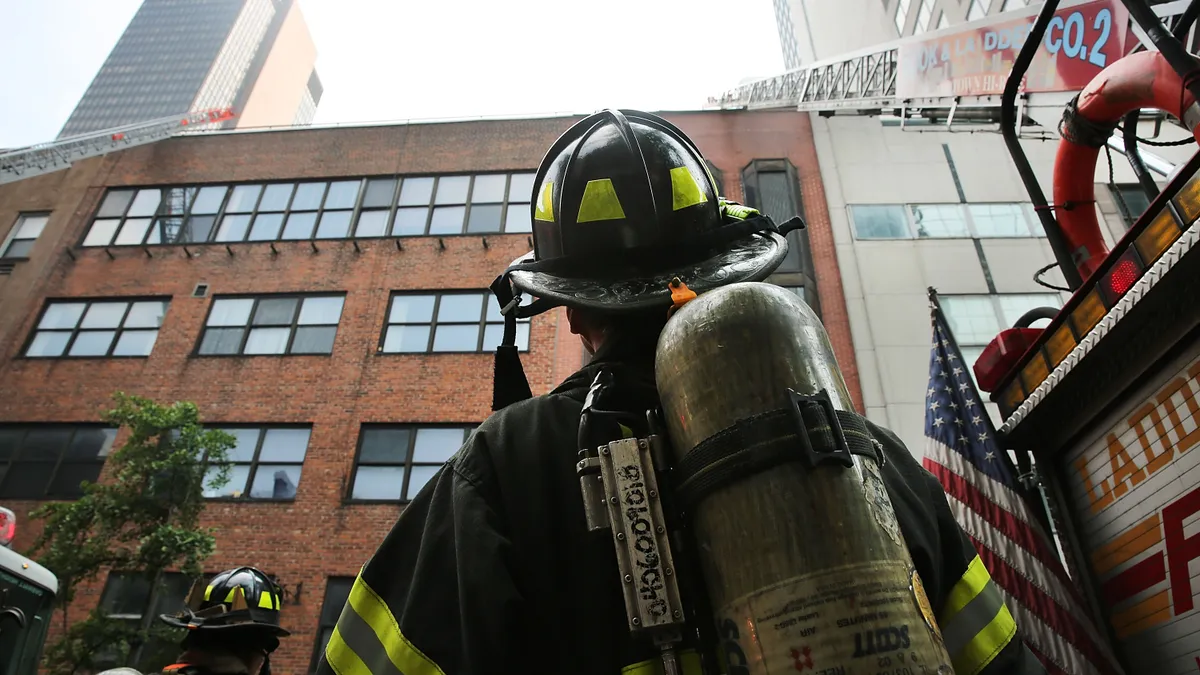Dive Brief:
- Firefighters with the New York City Fire Department were not entitled to an accommodation that is prohibited by federal safety regulations, the 2nd U.S. Circuit Court of Appeals ruled (Bey, et al. v. City of New York, et al. Nos. 20-456, 20-650 (2nd Cir. June 9. 2021)).
- The plaintiffs each had a condition called pseudofolliculitis barbae (PFB), known commonly as "razor bumps," which is marked by moderate to severe pain following shaving and affects between 45% and 85% of Black men. The firefighters were required to keep a clean shave, in accordance with U.S. Occupational Safety and Health Administration regulations regarding respirators. The fire department made an exception to this policy for firefighters with PFB and allowed men to have short facial hair, so long as they could pass a "fit test" to demonstrate their respirators remained properly sealed. But the department revoked the accommodation after a May 2018 review, prompting several employees to file suit.
- In their complaint, plaintiffs said the fire department violated the Americans with Disabilities Act by rolling back a previously offered accommodation. They also claimed that the change in policy violated Title VII of the Civil Rights Act of 1964 because PFB affects Black men more than men of other races, and because the shaving policy applies only to men. A district court found that the plaintiffs' Title VII claim failed but awarded them summary judgment on their ADA claim. The 2nd Circuit overturned the plaintiffs' victory, reasoning that an accommodation cannot be reasonable if it violates safety rules upheld by a federal agency.
Dive Insight:
The firefighters in this case argued that the fire department was not obligated to take away its respirator accommodation because of the OSHA regulation. They reasoned that the department encountered no problems with the accommodation for years previously, and they pointed to several expert reports that suggested short beards would not likely worsen respirator performance.
The court disagreed. "An accommodation is not reasonable within the meaning of the ADA if it is specifically prohibited by a binding safety regulation promulgated by a federal agency," the 2nd Circuit opined. "An employer cannot be held liable for failing to offer an accommodation that is expressly prohibited by binding federal law."
The 2nd Circuit pointed to a 1999 decision from the U.S. Supreme Court in its opinion. In Albertson's, Inc. v. Kirkingburg, the High Court ruled that a grocer "was not required to shoulder the burden of justifying [a] generally applicable regulatory standard" when it was sued by a commercial driver who sought reinstatement after falling short of a Department of Transportation vision standard.












